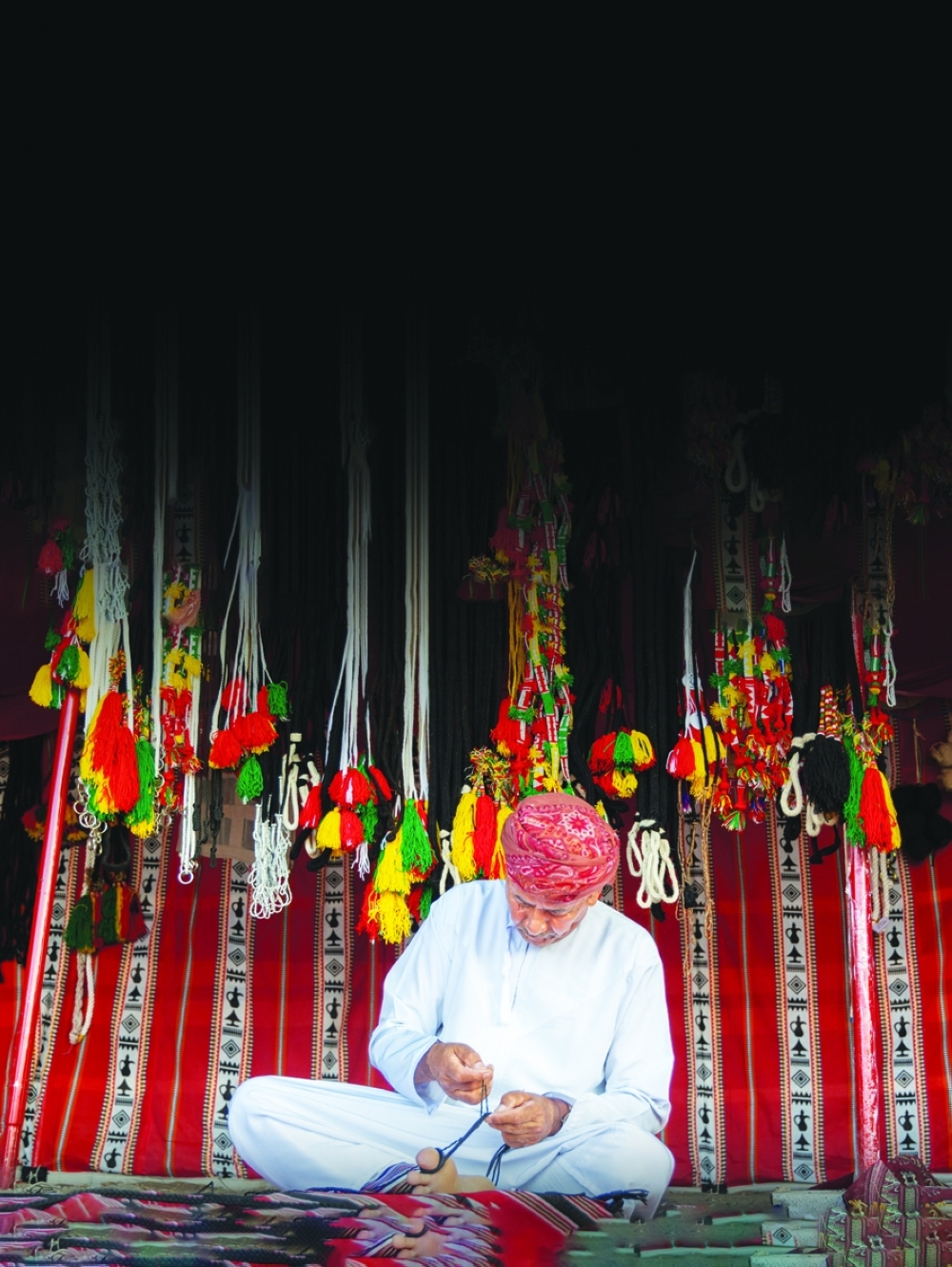

For many elders in Oman, traditions are not merely practices; they are stories intricately woven into the fabric of their identities. Whether it is preparing traditional dishes, reciting special songs, crafting handwoven textiles, or celebrating age-old crafts, these ceremonies serve as threads that tie generations together.
Bakitah Alqartoobi, a passionate participant in the recently concluded Suhar Festival, remarked, “I cannot miss the chance to partake in such an event, where many people come to watch us practise the ancient craft of making textiles from goat hair at home. The way they look at us, as if we come from a strange, distant world, makes us somewhat uncomfortable, yet it encourages us to demonstrate that this was the beginning in Oman and these crafts were the starting point of what we are today as Omanis.”
Bakhita’s insights shed light on the significance of these crafts, which represent much more than just a means of livelihood; they embody symbols of patience, resilience, and creativity.
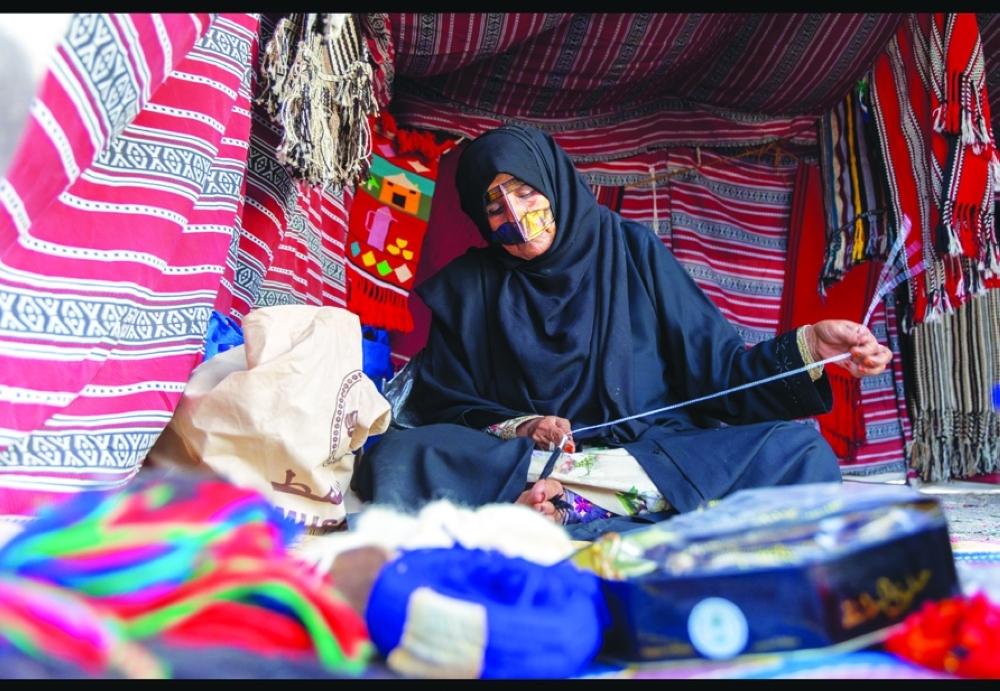
Their commitment to preserving ancient crafts such as handwoven textiles, pottery, silverwork, and palm weaving reflects their deep-rooted love for their heritage. Unfortunately, these time-honoured skills are at risk of fading away in the modern world.
The Craftsmanship of Omani Heritage
A few hours’ drive from Muscat, away from the busy noise of cars, inside Bakitah's home, the intricate process of crafting begins. The rhythmic sound of weaving fills the air, accompanied by the delicate scent of natural dyes.
Elders like Bakhita find solace in their work. While Bakhita specialises in weaving fabrics, other elders in Oman engage in different crafts, knowing that every stroke of the chisel, every carved detail, and every woven pattern carries a legacy steeped in history. For many, it is disheartening to witness younger generations turning away from these skills.
In this context, elders like Mohammed Almarzooki are determined to pass on their knowledge. He shared, “I am proud of what I hear about the youth who are striving to preserve our heritage using Oman’s natural and geographical resources. We continue to do what we have always done as craftspeople; the youth will learn from our experiences and delve more deeply into our past to ensure the sustainability of our heritage.”
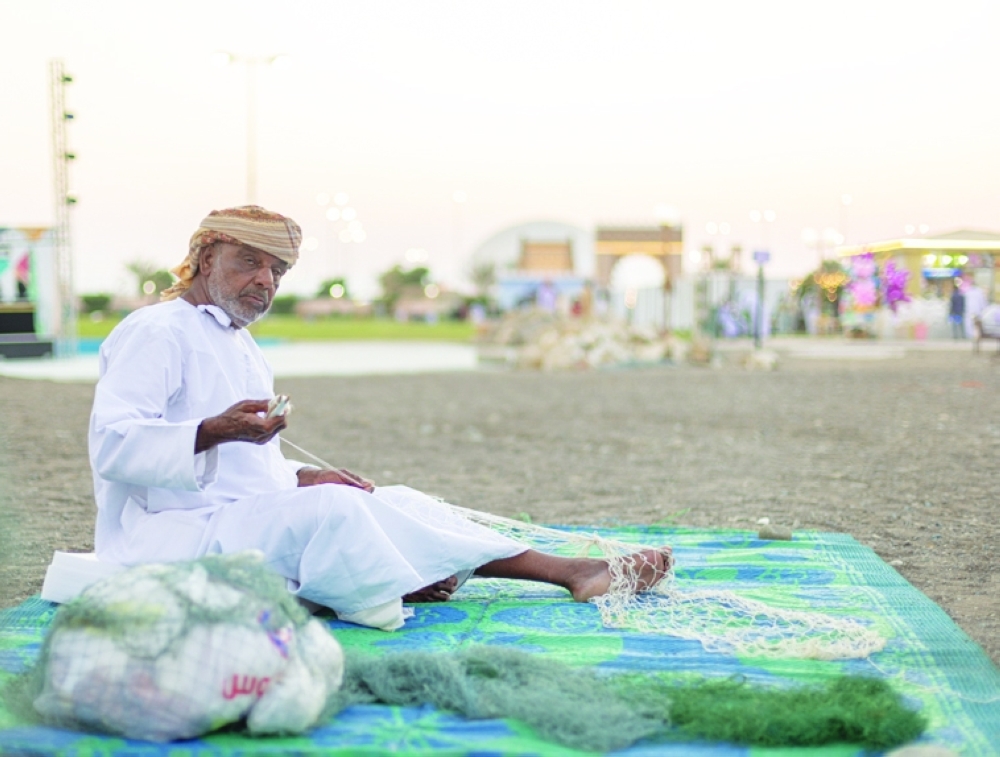
Fondly referred to as Umm, she resides in Bidiyah in the Al Sharqiyah region and opens her doors, extending her hospitality to visitors. Her home—a tent made of animal hair—becomes a welcoming place for those interested in Omani culture. She cooks traditional meals and invites guests to experience life in the desert.
“To welcome people into my simple tent and see them eagerly watch me create these pieces means so much to me,” she said with a warm smile. “It is our responsibility to share our heritage and culture in Oman and to show how we used to live in the desert.”
Imagine being surrounded by the breathtaking landscapes of Oman, with colourful textiles and intricate pottery displayed against the backdrop of the dunes. Visualise elders demonstrating their craft, hands skillfully weaving as they share stories of their ancestors. These images not only enrich the narrative but also celebrate the vibrant cultural heritage of Oman.
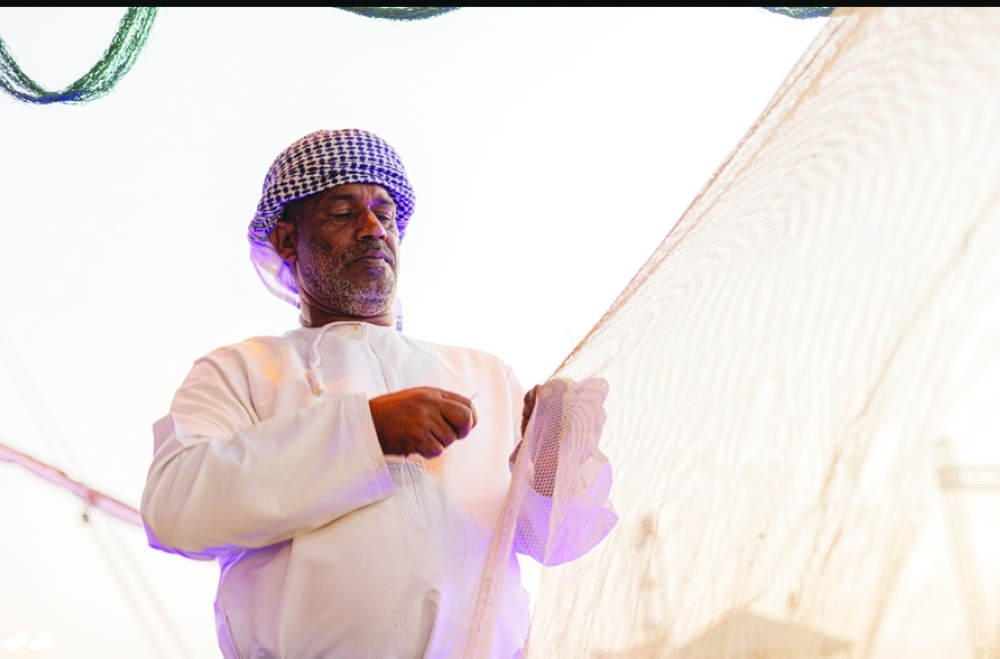
Community Support
In a commendable move towards preserving cultural heritage and empowering the elderly population, a series of initiatives have been launched across Oman, offering senior citizens a platform to showcase their skills and craftsmanship. These programmes are not only revitalising traditional practices but also fostering intergenerational ties and community engagement.
The Omani government, alongside local non-profit organisations, has initiated various workshops and exhibitions highlighting the diverse talents of elder citizens. Artisans, weavers, and poets are among those who are taking part, demonstrating skills passed down through generations. Local reports noted that these events have attracted large crowds and have been met with enthusiasm from local communities eager to engage with their elders' rich cultural offerings.
One such event is the "Elderly Skills Expo," held annually at the Oman Convention and Exhibition Centre. This year, the expo featured over thirty elder artisans from various regions showcasing traditional crafts such as khanjar (dagger) making, pottery, and embroidery.
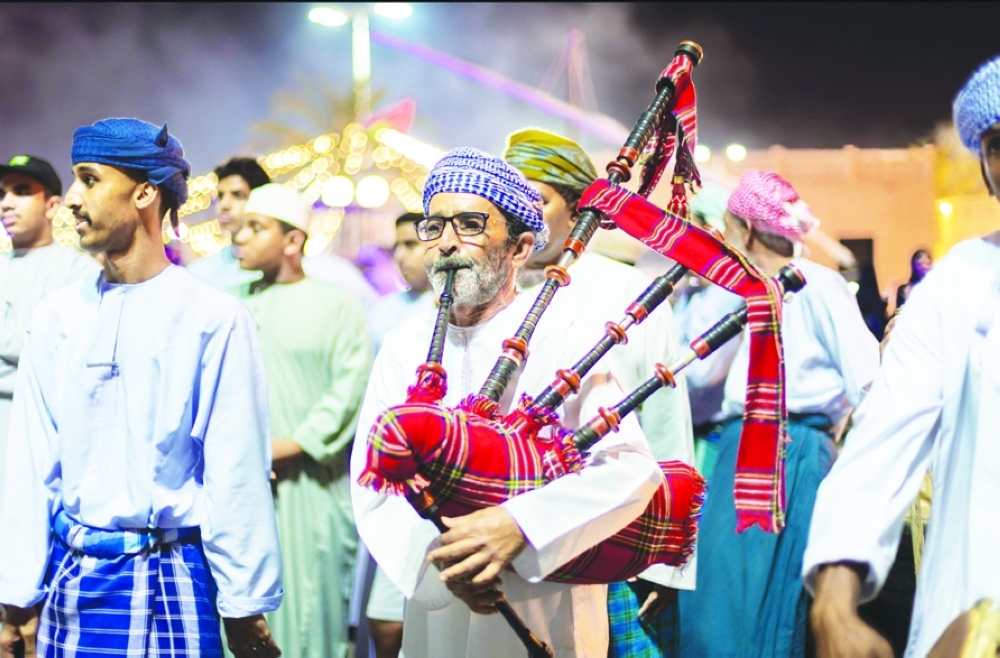
"I am delighted to see my skills appreciated by the younger generation," said 72-year-old weaver Fatima Al Rahbi, who has been practising her craft for over fifty years. "These opportunities allow us to share our stories and teachings, bridging the gap between age groups."
In addition to expos, local community centres are hosting weekly workshops where elders can teach their crafts to younger participants. This initiative has not only enabled the transfer of knowledge but has also encouraged collaborations between generations. Moreover, these initiatives align with Oman’s Vision 2040, which emphasises the importance of cultural preservation and community involvement. As the country moves towards a more diversified economy, tapping into the skills of elder citizens represents a unique approach to economic development while honouring the nation’s heritage.
It is clear that preserving Omani traditions is a shared responsibility between the generations. Elders invest their time and knowledge, while young people bring fresh perspectives and energy to these age-old practices. In this partnership, both parties find not only the motivation to engage but also a greater sense of purpose and belonging within their community.
Bakhita, reflecting on these changes, expressed her optimism. “When I see the youth picking up the crafts, I feel a warmth in my heart. It reassures me that our stories will not be forgotten, and our heritage will continue to thrive. We are not just preserving the past; we are shaping the future.”
Oman Observer is now on the WhatsApp channel. Click here


